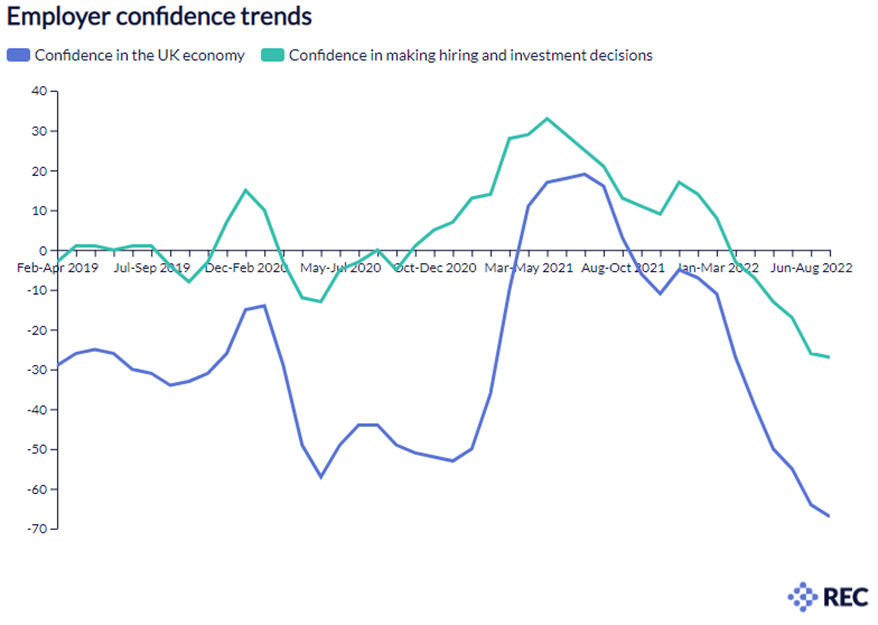Both measures surpassed the lows of the pandemic (-67 on the economic outlook in July-Sept 2022 by comparison with -57 in 2020, and -27 on investment intentions for their own business by comparison with -13 in 2020). That’s according to new data from the Recruitment and Employment Confederation (REC).
Despite this drop in confidence, the immediate outlook for hiring remains positive – employers report that hiring intentions for permanent staff were +17 over the next three months and +18 over the next year, both down 6 points from last quarter. Intentions on temporary work were +6 and +4 over the same time periods.
Neil Carberry, Chief Executive of the REC, said:
“The hiring challenges that firms are facing right now may be insulating the jobs market from dropping employer and candidate confidence. That said, over the longer term, we know that addressing shortages will be critical to being able to drive higher growth in our economy.
“In a market where firms are under pressure but still need to hire, getting it right really matters. That’s why working with recruitment professionals is more important than ever. Government too would benefit from using more experience from, the workplace in designing policy that will make a difference – like reforming the apprenticeship levy and addressing the need for new strategies that support those who are currently economically inactive into work.”
Other Statistics from today’s report showed:
- In September, a majority of employers reported that they were confused by or did not understand how to correctly determine holiday pay for irregular hours workers following the Harpur Trust v Brazel Supreme Court judgement in July 2022. 15% of respondents reported being confused, whilst a further 64% were unsure as to whether the organisation understood the impact.
Another recent report from the REC found that if labour shortages continue, a spike in demand in the economy could cost the UK up to £39 billion of lost growth every year, equivalent to almost the entire defence budget. This would also lower wage growth and reduce tax income, as well as causing lower profits. In Overcoming shortages: How to create a more sustainable labour market, the REC set out a number of recommendations for business and government, including prioritising long-term workforce planning at the highest level.







